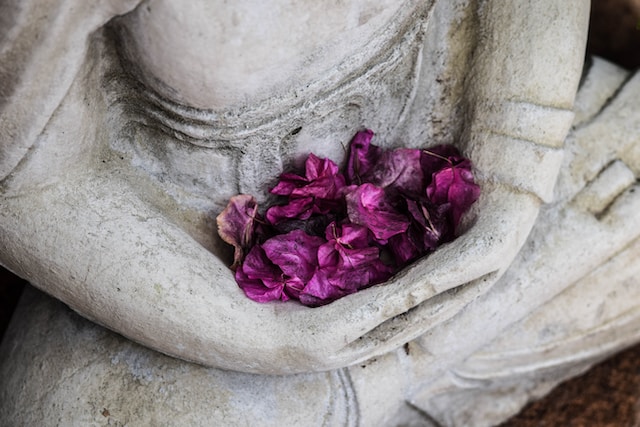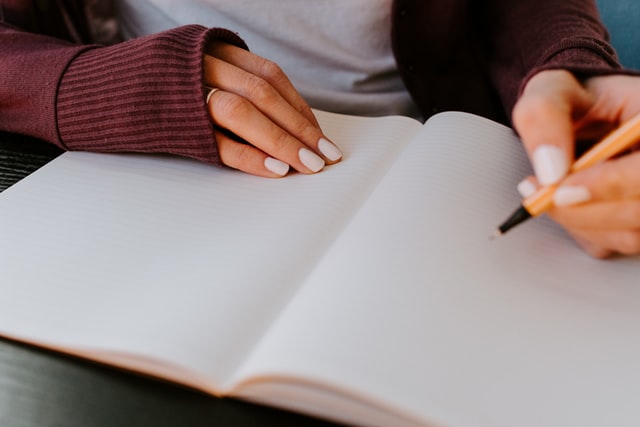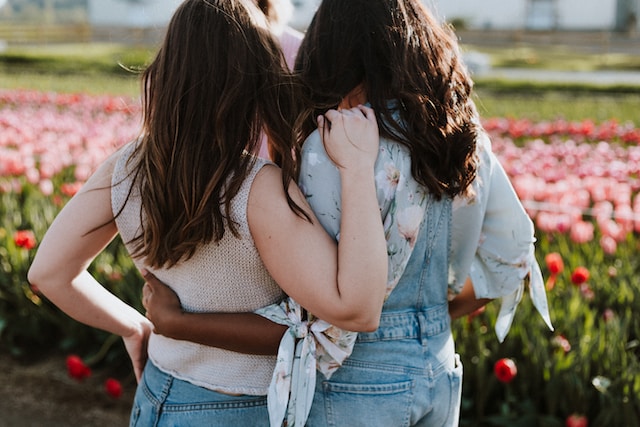8 Powerful Gratitude Activities – A Journey To Abundance
Unlock the power of gratitude with these eight powerful and transformative gratitude activities. Each practice is designed to help you cultivate long-term joy and happiness from deep within. Start your journey to abundance today.
Table of Contents
Imagine your glass would always be half full instead of half empty…
When we consciously focus on what we are grateful for, we train our minds to recognize and appreciate the positive aspects of our lives. This shift in mindset can lead to increased happiness and a more optimistic outlook on life.
Today we are exploring eight transformative gratitude activities you can easily integrate into your daily routines.
All eight gratitude activities are designed to help you acknowledge and celebrate the abundance in your daily life, fostering a deeper sense of appreciation and fulfilment from deep within.
We will cover gratitude activities for adults, gratitude activities for kids as well as gratitude activities for families – yes my friends, something for everyone, because gratitude is better together.

What is gratitude?
Gratitude is a positive emotion, filled with appreciation and thankfulness for something you have received.
It’s a way of connecting with your heart and taking a conscious approach to life as it is about taking the time to appreciate and recognize when something good happens to you.

The benefits of practising gratitude
Apart from the fact that keeping a positive mindset is one of the 5 key pillars of building a healthy lifestyle, practising gratitude regularly can positively affect various aspects of your life.
The top 5 benefits of regularly practising gratitude activities are:
- Improved mental health – when you cultivate gratitude, you move your attention away from negative thoughts and foster a more positive mindset which will lower stress levels, help ease anxiety and depression and enhance your well-being
- Enhanced physical health – people who practice gratitude tend to take better care of themselves; they exercise more regularly, make healthier lifestyle choices and have better sleeping patterns
- Improved relationships – when you express gratitude towards others you start to appreciate the people around you more which helps to build trust, increases mutual respect and fosters a deeper connection
- Boost your self-esteem – practising gratitude and appreciating the good things in your life will help you develop a more positive self-image and start cultivating a sense of self-worth which will help boost your self-esteem
- Be more present – by focusing on the good things that happen to you, you will increase your level of self-awareness and if you are more self-aware, you are more present in life
In summary: incorporating gratitude activities into your daily routine can lead to significant improvements in various parts of your life, fostering a healthier, happier, and more fulfilling existence overall.
Practising gratitude activities regularly will help increase your resilience so that you can maintain a sense of hope and optimism even in challenging times.

8 Powerful and transformative gratitude activities
Whether you are new to practising gratitude or looking to deepen your existing gratitude practice, these gratitude activities offer practical and enjoyable ways to embrace gratitude daily.
As mentioned earlier, we will explore a mix of gratitude activities for adults, gratitude activities for kids and gratitude activities for families, pretty much something for everyone!
1. Write in a gratitude journal
A gratitude journal is like a personal diary where you regularly record things/events, etc. you are thankful for.
A gratitude journal aims to focus your attention on the positive aspects of life, helping you foster a more positive mindset and create more joy, happiness and abundance in your life long-term.
A great way to start a gratitude journal is with the help and support of gratitude journal prompts. Gratitude journal prompts or writing prompts are questions that spark your thinking process.
Below are some gratitude journal prompts examples:
- Reflect on something about yourself that you are proud of or grateful for.
- What is the best thing that happened to you today?
- What/who makes your days better?
- List the people that have positively impacted your life. Why have they impacted your life and how?
- Describe a recent positive experience that brought you joy. Why was it meaningful to you?
- What changes have you made in your life that you are happy about?
- What is something you are grateful for that you let go of?
- Think of a challenge you have overcome. What lessons did you learn, and why are you grateful for that experience?
When answering your gratitude journal prompts…
- Be specific and to the point. How did that person/situation make you feel? Why did you feel grateful?
- Connect with grateful words such as ‘gifts’, ‘blessing’, ‘feeling of abundance’ etc.
- Write sincerely; honest and heartfelt reflections are the most impactful.
- Focus on the present, this helps to keep the gratitude activities relevant and immediate
Once you finish your gratitude journal entry, read over your notes and let the feeling of gratitude settle in your heart. Sit with this feeling for a little bit before you get back to your day.

2. Start a gratitude jar
A gratitude jar is a jar or container that you place somewhere in your home, such as in the kitchen. Every time you experience something kind or something you feel grateful for, you write it down on a piece of paper and put it into the jar/container.
A gratitude jar is a perfect gratitude activity for the whole family. During the year, everyone collects moments of gratitude in the jar and towards the end of the year, you come together as a family for example for a family dinner, everyone picks a couple of notes from the jar, or even more, and you read and share these moments of gratitude with each other.
To learn how to make a gratitude jar, check out this video for DIY instructions and creative inspiration.
3. Do a gratitude walk
Put on your walking shoes and head out for a gratitude walk in the forest, along the seaside, in the park, etc.
A gratitude walk is a mindfulness practice that combines walking, physical movement/exercise, and a deep appreciation for the world around you.
The key to a gratitude walk is to be fully present in the moment and appreciate nature’s beauty with all your senses.
Keep your eyes and ears open, activate all your senses, be in the moment and embrace the abundance of the beauty around you.
If you are looking for more gratitude activities for kids, a gratitude walk is perfect. It is a mindfulness exercise in which they connect with nature and learn to appreciate and respect nature.

4. Do a random act of kindness
‘What goes around comes around…’
Share the love and practice gratitude by doing a random act of kindness.
Do a selfless gesture to brighten up someone else’s day. For example: smile at a stranger, hold the door or elevator for another person, compliment someone on his/her outfit, pay the coffee for the person behind you at Starbucks, do community work, etc.
These random acts of kindness do not require a specific reason. A random act of kindness is a spontaneous and selfless action done to help and uplift someone else without expecting anything in return.
Positive side effect: Often, these random acts of kindness can create a ripple effect, inspiring others to do the same.

5. Gratitude affirmations
Gratitude affirmations are positive statements that help you focus on and appreciate the good things in your life.
By regularly practising gratitude activities such as gratitude affirmations, you can cultivate a more positive mindset, reduce stress, and improve overall well-being.
Gratitude affirmations examples:
- I acknowledge the abundance that surrounds me and flows into my life.
- I appreciate the simple joys that each day brings to me.
- I am grateful for the lessons I’ve learned from both challenges and successes.
- I appreciate the kindness and generosity of others in my life.
- I am grateful for the health and well-being of myself and my loved ones.
- I am thankful for the peace and serenity in my life.
- …
Incorporating these gratitude affirmations into your daily routine, such as during meditation, journaling, or even during your yoga practice, can help reinforce a sense of gratitude and positivity.
Below are a few tips when practising gratitude affirmations:
- start with a few deep breaths to calm the mind and become present
- speak your gratitude affirmations out loud
- focus on 1 – 3 affirmations max
- take a moment to reflect on the gratitude affirmations and think about specific examples and moments that relate to them
Gratitude affirmations are great gratitude activities for adults and students and they can also be beneficial for kids, helping to cultivate a grateful and optimistic outlook from a young age.

6. Express your gratitude at the moment
Thank the people around you for their support in a certain situation, being in your life, having a positive impact on your life etc.
By expressing gratitude in the moment you make the other person feel appreciated, create positive connections, and spread kindness and appreciation.
Below are a few tips:
- speak from the heart – authenticity is key to making the other person feel truly appreciated
- be specific – mention exactly what you are grateful for and why it means so much to you; being specific shows that you value and have noticed the other person’s actions/qualities
- use positive body language – maintain eye contact, smile, and use a warm tone of voice
- make use of the moment – express your gratitude as soon as possible after the moment you are thankful for; immediate appreciation can make the impact stronger
- express emotions – don’t be afraid to show your emotions
7. Write a gratitude letter
A gratitude letter is a written expression of appreciation and thanks to someone who has positively impacted your life.
Writing and sharing a gratitude letter can strengthen your connection with the recipient and increase your sense of happiness and well-being.
Tips on how to write a gratitude letter:
- express your gratitude – say why you are writing this letter and let the person know that you are grateful for their actions, support, presence in your life, etc.
- be specific – give specific examples or situations where this person’s actions, words, etc. have positively affected you
- explain the impact – describe how their kindness or support has made a difference in your life; explain the positive changes, feelings, etc. experienced as a result
- acknowledge their qualities – highlight the qualities or characteristics of the person; this can help them understand why their actions meant so much to you
Writing a gratitude letter can be a powerful way to reflect on the positive influences in your life and express your appreciation in a meaningful way.
8. Create a gratitude collage
Creating a gratitude collage is a fun and creative way to visually express and remind yourself of all the things you are grateful for.
Here is what you need to create a gratitude collage:
- a sturdy base such as a poster board, canvas, etc.
- magazines, printed photos, or any images that represent things you are grateful for
- a pair of scissors and a glue stick
Lay out the images and words on your base without glueing them down initially. Experiment with different arrangements until you are happy with the look and feel.
Once you are satisfied with the arrangement, start glueing the images. Use markers or pens to write additional words, quotes, or notes of gratitude directly onto the collage. You can also add stickers, embellishments, or other decorative items to enhance your collage.
Place your gratitude collage somewhere visible, e.g. over your desk, on the fridge in the kitchen, etc. so that you can see your gratitude collage every day.
If you are looking for gratitude activities for kids, this is one to try. Kids love getting creative.
How to establish a regular gratitude practice
By incorporating some of these fun gratitude activities and gratitude exercises into your daily routine, you start to open yourself up to more joy and happiness in life.
Tips on how to start a regular gratitude practice:
- set a specific time for your gratitude practice
- make your gratitude practice part of your daily routine
- stay consistent with the time and day of your gratitude activities
- mix it up and try different gratitude activities
- reflect on changes to reinforce the benefits of your practice and motivate you to continue
Remember, every minute you invest in yourself will pay off. Keep showing up for yourself.

Out of all the gratitude activities we just went through, my top two gratitude activities are having a gratitude journal and expressing gratitude right when you experience it.
I do my gratitude practice every morning and I either write into my gratitude journal or I list three things I feel grateful for after my morning yoga and meditation practice.
Speaking my gratitude out loud is something I started in the past couple of years and from my personal experience, I can say that it helps to strengthen relationships, but it also makes you appreciate the relationship and people you have in your life so much more.
Related resources:
Thank you for your time and space my friends, I appreciate you. Have you joined our online community yet? If not, make sure to sign up for my newsletter to stay up to date with my latest blog posts, yoga tips and well-being tips. I can’t wait to connect with you.
Stay wild,
Nicolle
Featured Image by Erriko Boccia on Unsplash
Hi, I’m Nicolle, a certified Personal Trainer, Yoga Teacher, and Blogger. I’m the founder of Let Your Shadow Shine and the voice behind this blog — your space for fitness, well-being, and self-discovery. On this blog, you will find empowering movement practices, holistic well-being tips and personal growth inspiration, all helping you to live with intention and create a life aligned with your inner truth.






Love this post!
Thanks so much, Kelly! Glad to hear that you enjoyed the read 😉
Journaling and expressing gratitude daily is so powerful. It helps me a lot mentally. However, I have to be more consistent. Thank you so much for sharing, that’s a great article.
Hi Mariya, Thank you so much for your comment! Happy to hear you enjoyed the post 😉
I had never heard of the gratitude pictures and I think that’s such a wonderful idea. Nothing like a pretty picture to lift your spirit. It also makes you more focused as you have to see your surroundings and look for beauty.
Thanks so much for your comment, Mayra! Yes, this one really asks you to practise your awareness even more 😉
Great post! I really love the idea of taking a gratitude photo. I’m going to start that myself ?. Thanks for sharing
Awww, thanks so much, Ruth! Yes to the gratitude photo…..enjoy 😉
I love the gratitude jar idea. Love this post!
Thanks so much for your comment Veryl! I like this one too! Especially when you live with more people 😉
Such a beautiful post!
Thanks so much for stopping by Leena 😉
I often forget to practice gratitude. This is a great reminder for me to do it again. Thank you for sharing! Love the “glass being half full instead of half empty.” I have to constantly remind myself of that line xx
Thanks so much for your comment, Martina! Here is to the glass being half full, always 😉 xx